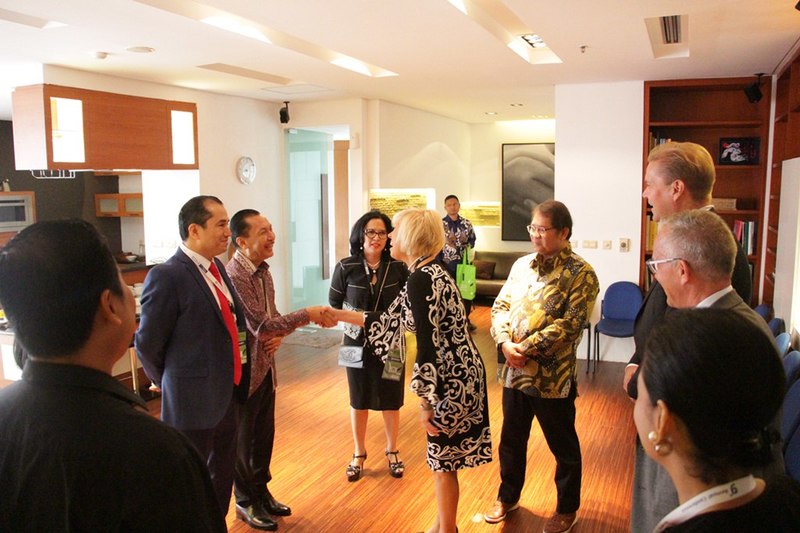
Leading educational organisation Highscope Indonesia Institute recently hosted its 9th Annual Conference as part of its dedication to integrate students, educators and parents together to discuss the betterment of education both domestically within Highscope Indonesia as well as in general within the community.
Designed in conjunction with the main theme of Redesigning The World: From Theory into Action, HighScope Indonesia puts the focus on improving teacher and student quality by inviting education and human resources experts for an open panel of discussion between students, educators, parents, and everyone else within the relevant scope. Some of the prominent guests include global and local prominent education figures, such as then minister of Communication and Informatics, Rudiantara; Petri Vuorinen, Principal of The English School, Finland; International Education Consultant, Denise White and Alisa Brady; and author, educator, entrepreneur, Professor Rhenald Kasali.
This 9th Annual Conference is expected to reaffirm stakeholders of Highscope Indonesia’s fundamental vision that active, wholistic learning centred on students mediated by well-equipped teachers and conducive school environment is key to a successful education system.

In an exclusive interview, Founder Antarina S. F. Amir imparted her wisdom in education. “We send our children to school not to achieve a set of grades or to please their teachers or us parents. We send our children to school so they can learn to make a decision. They should be taught about concepts and skills that leads to maximizing the brain’s executive function of making good decisions in their adult life.”
Petri Vuorinen, Principal of one of Finland’s best schools, told NOW! Jakarta about the education system in Finland and why it works. School time in Finland is shorter than most countries, and the hours are filled with active learning process that encourages students to work on their communication, coordination and evaluation skills, among other things. Homework are typically very light, if any at all. But the most interesting aspect is probably the fact that there is no graduation test at each grade, save for the 12th grade towards graduation.
Regarding the evaluation system, Petri explained, “Students are encouraged to present their work at every assignment and tell the educators why they believe their work is good and what they have learned from it, what they have gained from it, and how the creation process has helped them understand something better. This is one among many learning aspects that are crucial if we’re trying to teach the children to come up with answers to questions that have not yet appeared.”

Antarina further added that HighScope Indonesia strongly believe that students must acknowledge, understand, practice decision-making skills starting from pre-school and all the way up to higher education level. “Students need to answer critical questions related to their own purpose, need and interest, and they are also required to link their studies with current global affairs.”






